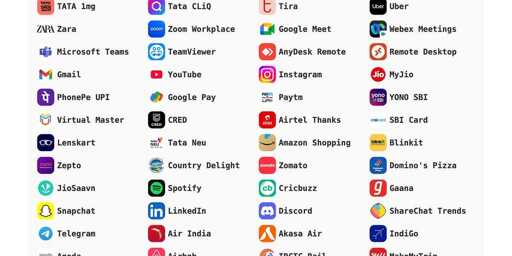You really have to see what the db is doing to understand where the bottlenecks are, i.e. find the query plans. It’s ok if it’s just single selects. Look for stuff like table scans that shouldn’t happen. How many queries per second are there? Remember that SSD’s have been a common thing for maybe 10 years. Before that it was HDD’s everywhere, and people still ran systems with very high throughput. They had much less ram then than now too.
- 17 Posts
- 697 Comments
Sounds like it would be nice if Savannah offered Forgejo hosting.

 2·16 days ago
2·16 days agoOh I see. Yeah DVD drives generally use the same SATA interface as hard drives.

 4·16 days ago
4·16 days agoIf you mean a 2.5" drive (laptop sized) then yes you can generally do that. 3.5" drives are usually 1" thick and won’t fit in a slim DVD drive slot.

 8·17 days ago
8·17 days agoIt’s a substack (ugh), but you can click “no thanks” under the email field and it takes you to the article, which is by Ryan Grim. The article is somewhat hard to understand though, as it jumps between a few different topics.

 2·17 days ago
2·17 days agoNewegg doesn’t seem to sell the Crucial MX500 any more*, only the BX500. But if the 870 evo is comparable, I might get that, since I have a couple of MX500s now and am happy with them. I hadn’t realized that Team Group was legit at all! I’ll keep that in mind. Thanks!
*Note: The MX500 appears on Newegg’s web site, but the actual sellers are “Newegg Marketplace” randos rather than Newegg itself, and I prefer to buy directly from Newegg when possible.

 1·17 days ago
1·17 days agoI don’t think I can use NVMe in my old laptop but yes, otherwise I’d do so. ;)

 1·17 days ago
1·17 days agoThanks, I think you have it right and that it’s not worth messing with adapters. The adapter was never about performance from my perspective though. It was about being able to keep using the drive if I eventually moved to a laptop with an M.2 slot.

 1·17 days ago
1·17 days agoQVO is QLC flash which has worse durability. I’m trying to stay away from it though maybe it works better now than it originally did. Hmm, I had thought that the drive I looked at a while back had HMB but was not NVMe. Maybe you are right and I didn’t look closely enough. I believe those SATA shells don’t work with NVMe drives.

 2·18 days ago
2·18 days agoThe purpose of the cache is to improve latency and save SSD wear. It doesn’t help much with throughput as far as I know. Although if it’s on the host side, maybe it does.

 2·18 days ago
2·18 days agoHMB is host memory buffer or something like that. It means instead of having a ram buffer in the drive, the OS software uses some of the host computer’s memory for disk buffering. That makes the drive cheaper but I haven’t heard claims of it being any faster. Consumer drives seem to all use it now, and Linux supports it, but maybe not when you wrap up the HMB drive in a SATA shell.
I guess $90 for 1TB is pretty good. I have been suspicious of the EVO drives but at least they aren’t QVO.
Thanks!

 5·18 days ago
5·18 days agoThanks, I wasn’t really thinking about transfer speeds, it’s just the PCIe drives are cheaper (depending) and more re-usable if I get a newer laptop later. I think you are right though that it’s not worth messing with adapters.
I dunno if there’s such a thing as a reliable brand. The brands have reliable and unreliable models. Particularly I have the idea that I should be avoiding QLC drives, but that TLC these days is ok.
For what it’s worth, there’s an FSF article that addresses this:
https://www.gnu.org/philosophy/programs-must-not-limit-freedom-to-run.html
Whether it’s persuasive is of course up to you to decide ;).

 8·20 days ago
8·20 days agoJava isn’t exactly hard, and it’s not particularly fundamental. It’s just bureaucratic, and Python will be both more enjoyable and more useful. Java was trendy in the 1990s and lingers on because so much Java code is still around. If your goal is to use a serious type system (Lisp and Python don’t have that), Haskell will be far more enlightening than Java. If you want to use the JVM for some reason, Clojure (a Lisp dialect that run in it) might interest you.
For low level fundamentals, you want assembly language! That gives you almost no assistance and you have to do EVERYTHING yourself, organizing the program in your own head. For old fashioned imperative programming with lots of organizational assistance, try Ada.
You will probably have to learn C at some point, but save it for later when it will be easier for you to spot the weaknesses.

 4·20 days ago
4·20 days agoI don’t remember being that impressed with HTDP but it’s been a while and I didn’t look much. I’d say read SICP first in either case.
The Java thing sounds totally uninteresting and if your next language after Lisp isn’t a a mainstream one, I’d say try Haskell.
Regarding math: it can help but it’s not that important for pure programming. If you’re good at languages and writing, that’s helpful in the same way. If you’re good at music, that is at least a helpful mindset.

 12·20 days ago
12·20 days ago
I bless your computer, my child.

 2·20 days ago
2·20 days agoYou can turn off Borg encryption but maybe what you really want is an object store (S3 style). Those exist too.

 3·20 days ago
3·20 days agoI’m using Borg and it’s fine at that scale. I don’t know if it would still be viable with 100TB or whatever. The initial backup will be kind of slow but it encrypts everything, and deduplicates it too if I’m not mistaken. In any case, it deduplicates the common situation where you back up another snapshot later. Only the differences get written in the second backup. So you can save new snapshots fairly quickly and without much additional space.

 12·21 days ago
12·21 days ago/me laughs in Unihertz Tank 3.
https://www.unihertz.com/products/tank-3-pro
Added: non-google link to OP article:
https://wccftech.com/oneplus-working-on-snapdragon-8-elite-flagship-with-7800mah-battery/







Does that mean they are enlarging the inventory now? As opposed to dismantling old bombs as they make new ones (modernization while keeping the number constant)? I thought there was a treaty capping the total number but haven’t been keeping track.